Language Matters: Confronting the language of science
South Africa has a remarkable fossil record dating back 6.3 million years, including important hominin finds like Homo naledi and ‘Little 'Foot’.
South Africa also has a rich cultural identity with 11 official languages. Yet only two of these languages – English and Afrikaans – have the scientific vocabulary to communicate this heritage.
“This marginalises the nine other languages and denies engagement which communities may have had with these fossils in pre-colonial times,” said Robyn Humphreys, a PhD candidate in Archaeology at the University of Cape Town.
Compounded by the country’s apartheid past, in which language was used as a weapon to control and subjugate, Humphreys opened HERI’s #LanguageMatters Heritage Month event, by asking:
How has this impacted science communication and doing research as young, Black South Africans.
Held on 21 September 2020, Humphreys hosted the hour-long conversation with guests:
Nomawethu Hlazo: PhD candidate in Archaeology at the University of Cape Town (UCT), and the only black South African woman studying the evolution of Paranthropus fossils
Ryan Daniels: genomics researcher at the University of Western Cape interested in the pre-colonial genetic history of southern African people
Sibusiso Biyela: research communicator and co-founder of ScienceLink, who translates science writing into his native isiZulu
The language of science is important not just for communicating science with the public, but also for those who have been historically harmed by scientific practice. For example, with face masks and the handling of human remains.
It can also be a barrier to those who might seek a career in the sciences, like Sibusiso Biyela. With an early love for science and history, he said the jargon-heavy language of science pushed him away.
“It seemed like scientists were saying ‘I'll take as long as possible to say what I'm trying to say so maybe it'll sound more impressive than it really is’,” he said.
Nomawethu Hlazo, whose research involves human remains, says her experience with the language of science was exclusionary – and shocking.
“It’s very cold and withdrawn from the humanity of working with people,” she explained. “These were people, someone's relatives.”
For Ryan Daniels, he was confronted by problematic language when he began his PhD project working with the Coloured communities in South Africa.
“Because of the way people were brought to the early Cape colonies, their narrative has been owned by European overtones,” he said.
Changing the way science is communicated is essential for inspiring pride in South Africa’s human evolution heritage and the value of its researchers.
“We can't be living in a country where we're so fossil rich - and not have all the youth, and 11 official languages showing what fossils are,” she said. "If we don't move away from the jargon, no one will understand the importance of our work.”
But how can researchers and science communicators do better, asked Humphreys.
Start with representation in science, said Daniels. "Once we have representation, we are better placed to talk about the narrative and what it means and how it looks,” he said.
It’s also important to speak up, said Hlazo. However, she recognised that as a black woman, even she found that difficult.
“If you see problematic language or words, you should approach the situation as best as possible. Ask why that old, offensive language is still being used,” she said.
Sign-up for science communication (scicomm) courses and move to communicating science in the way “human beings talk,” said Biyela.
“Don't dumb it down, but make it so someone else can understand it," he said, adding that the effectiveness of this type of communication can help start conversations and open new opportunities.
When asked if they found push-back from their universities and advisers to changing the status quo of language, the guests shared a moment of positivity.
All agreed that their efforts were welcomed. But Daniels noted their privilege in experiencing such acceptance. “That may not be the same for everyone,” he said.
For example, he noted supervisors or collaborators on projects who may be insistent on using derogatory terms and using their academic weight, experience or titles as justification.
“There are still those who are resistant to change,” he said.
The HERI #LanguageMatters Heritage Month event was held in partnership with Digging In. A new podcast on African palaeosciences and the Black experience, it’s co-hosted by Robyn Humphreys and Silindokuhle Mavuso from the University of the Witwatersrand.
